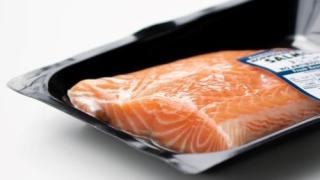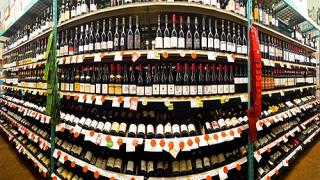News Briefs
Salmon Tops September Seafood Sales
While sales in fish decreased by more than 10% in September due to shoppers bypassing categories that have been hit hard by price hikes, salmon still managed growth in a tough seafood month. This is according to the latest data from 210 Analytics and Information Resources Inc. (IRI).
As indicated from IRI's September performance report, frozen seafood dollar sales were about $29 million higher than fresh seafood in September 2022. While sales in both areas declined when compared with last year, fresh lost more ground. Only shelf-stable seafood (canned and pouches) increased, rising 7.8%, although units and volume were down.
[Read more: "Strategies for Selling Seafood Post-COVID"]
In the third quarter of 2022, Chicago-based IRI found that fresh seafood generated $1.6 million in sales. Despite the inflationary boost, the unit and volume declines were too steep to achieve dollar growth. Total fresh seafood sales were down 7.8% in the third quarter, with the majority of this decline driven by fresh shellfish. Compared with 2019, the pre-pandemic normal, dollar sales were far ahead and volume was about the same.
According to IRI, fresh salmon was the top performer in the third quarter of 2022 as well as in the month of September. Fresh salmon alone is bigger than all of fresh shellfish combined. Yet salmon grew dollar sales by a little under 6% while keeping pounds steady in what was a very strong month. Two other areas that improved pound sales were crab and lobster, but both are lapping last year’s declines. Tilapia sales were down more than 20% in dollars and more than 40% in volume on very high inflation.
Lawsuit by Tops Market Trustee Against Morgan Stanley May Proceed
A New York bankruptcy judge ruled Oct. 12 that a lawsuit filed by the litigation trustee for Tops Market LLC against New York-based Morgan Stanley and other defendants may proceed.
The case alleges that Morgan Stanley, a onetime private-equity owner of Tops, caused the supermarket chain to file for Chapter 11 bankruptcy by having it pay out more than $375 million in “lavish and illegal dividends” to Morgan Stanley and Tops’ other private-equity owners, while running up $426 million in debt and saddling the grocery company with $515 million in liabilities from underfunded pension plans.
Kyle Lonergan, of McKool Smith, lead counsel for the plaintiff in Alan D. Halperin v. Morgan Stanley Investment Management Inc., et al, and noted: “We are happy with the decision and look forward to prosecuting the case for the benefit of the creditors of Tops.” The law firm has offices in Austin, Texas; Dallas; Houston; Los Angeles; Marshall, Texas; New York; Washington, D.C.
As reported in Law360, Morgan Stanley-led group of private-equity investors purchased Tops in 2007 for $300 million, $227 million of that amount funded by debt issued by Tops, and sold it in 2013 to a group of Tops executives for $21 million. After Tops filed for Chapter 11 in 2018 and a $455 million reorganization plan was approved, a litigation trust was established. In 2020, trustee Halperin filed suit against Morgan Stanley and the other private-equity owners.
Williamsville, N.Y.-based Tops Markets LLC operates 150 supermarkets, including five franchise stores, and employs more than 14,000 associates in New York, Pennsylvania and Vermont. The banner’s parent company, Northeast Grocery Inc., is No. 44 on The PG 100, Progressive Grocer’s 2022 list of the top food and consumables retailers in North America.
Aldi Cuts Prices on Dozens of Products Ahead of Holidays
In an effort to help shoppers save money this holiday season, Aldi has slashed prices on many of its top-selling items. The new prices will last through the end of the year and are an extension of the Aldi Price Promise to be the low-price leader throughout the communities it serves.
Prices on products including frozen ground beef, frozen sushi rolls, cold smoked salmon, raw honey and bacon have been lowered by as much as $1. Organic black beans, snacking cheese and cooking spray have also been added to the discounts.
[Read more: "Why Aldi Is at the Sweet Spot of Food Retailing"]
“We know saving money has never been more important, and it’s especially important for our shoppers as they head into the busy holiday season. That’s why we are dropping prices on some of our most popular items in order to make the biggest impact on our customers’ grocery bill,” said Scott Patton, VP of national buying. “As we kick off the busiest time of year for buying groceries, we want our shoppers to know we are focused on giving them the best possible prices so they can focus on celebrating the holidays with their friends and families.”
Operating in 38 states, Batavia, Ill.-based Aldi U.S. is No. 24 on The PG 100, Progressive Grocer’s 2022 list of the top food and consumables retailers in North America.
FDA to Evaluate Children's Exposure to Mercury From Seafood
The U.S. Food and Drug Administration (FDA) has revealed the launch of an independent study by the National Academies of Sciences, Engineering and Medicine (NASEM) on the "Role of Seafood Consumption in Child Growth and Development." The FDA is partnering with the National Oceanic and Atmospheric Administration, U.S. Department of Agriculture, and U.S. Environmental Protection Agency on this study, which supports the goals of the FDA’s Closer to Zero Action Plan for reducing the exposure of babies and young children to mercury, arsenic, lead and cadmium from foods.
Seafood is part of a healthy eating pattern and provides key nutrients during pregnancy, breastfeeding and/or early childhood to support a child’s brain, spinal cord and immune system development. At the same time, seafood is the primary dietary source of mercury, which is spread throughout the environment by both natural and human-made processes. Mercury can damage the nervous system, and babies and young children are more vulnerable to the harmful health effects of mercury. Seafood can also be a source of exposure for other naturally occurring and human-made contaminants.
[Read more: "The Next Wave of Seafood Sustainability Improvements"]
NASEM will convene a committee of experts to conduct systematic reviews of the scientific literature on seafood nutrition and toxicology. This data will inform the basis for evaluating how seafood consumption impacts child growth and development. The study will also help determine whether updates are needed for the current Advice about Eating Fish for children and those who might become or are pregnant or breastfeeding.
NASEM will publish the committee’s report after the study is complete, in approximately 18 months. The FDA will use the report’s findings, along with other data and information, to advance policies and programs that support healthy child growth and development.
Grocery Store Wine Sales on Ballot in Colorado
Many Colorado shoppers and retailers are toasting proposed legislation permitting the sale of wine and similar fermented beverages in grocery stores. Residents can vote up or down on Proposition 125, which is on the ballot for the Nov. 8 election.
The measure would allow grocers and c-stores that are currently licensed to sell beer – okayed by the legislature for retail sale in 2016 – to also purvey wine, cider, mead and sake after March 1, 2023. According to the proposed legislation, retailers can also offer tastings if approved by the local licensing authorities.
[Read more: "Drinks With DoubleDash Debuts"]
There are some limits to Prop 125. For example, a grocery or c-store would not be licensed to sell wine and fermented malt beverages if it is located within 500 feet of a retail liquor store or licensed wine retailer.
Another piece of legislation is in front of voters, too. Coloradans have a chance to vote for or against Proposition 126, which would allow for alcohol product delivery by third-party services and grocers.
According to local media reports, the measures have the support of major grocery businesses. The Wine in Grocery Stores issues committee, which has raised more than $11.2 million, has been backed to various degrees by retailers including Albertsons Cos., The Kroger Co. and Target Corp., and delivery platforms Instacart and DoorDash, among others.
“Coloradans want convenience. They want choice. They want Starbucks, a deli, a COVID booster shot, organic produce and a specialty cheese section at the grocery store, along with beer and wine,” committee representative Sheila MacDonald told Colorado Public Radio this summer.
Meanwhile, several independent liquor stores in the state have voiced their opposition to the proposed legislation, citing competitive concerns. “Every small liquor store depends on wine sales to keep their lights on,” declared Loren Touch of Gunbarrel Liquors in Gunbarrel, Colo., in a recent article published by Colorado Politics.
USDA Doubles CEA Research Center Footprint With Vertical Farming Labs
The USDA Agricultural Research Service (ARS) has awarded a new contract to AmplifiedAg, an agricultural technology company focused on controlled-environment agriculture (CEA), to supply additional integrated vertical farming research labs to support the agency’s CEA research initiatives. The new labs effectively double the capacity of the USDA’s CEA Center of Excellence, where the agency is conducting its first project for the indoor-agriculture industry.
“We’re extremely proud that the USDA has once again selected AmplifiedAg’s technology to advance and expand its category-defining CEA research,” said Don Taylor, CEO of Charleston, S.C.-based AmplifiedAg, which provides fully integrated farms and multi-tenant software-as-service architecture. “This first-of-its-kind scientific research will lead to greater transparency, innovation, and adoption of indoor-agriculture technology and indoor-grown produce, while addressing the challenges that impact our global food and agricultural systems.”
[Read more: "Grocers Focus More on Responsible Sourcing, Vertical Farms"]
The USDA-ARS first contracted AmplifiedAgin October 2021 to provide fully integrated container-farming research labs. This most recent contract marks the third time in the past 11 months that the agency has selected AmplifiedAg technology to support and scale the center’s work.
The public research will help standardize growing methods for indoor-farming operators across the country. Key areas of research include comprehensive CEA growing applications such as hydroponic and vertical farming, LED light-spectrum impact analysis on plant growth, renewable energy, nutrient optimization, plant pathology, plant breeding and selection, pollinator experiments, and new automation processes.






